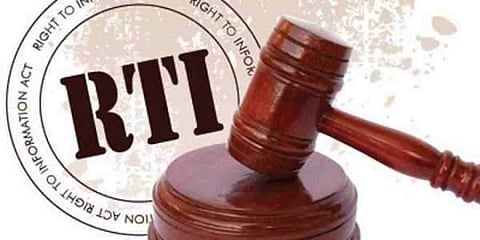

Emphasising that transparency doesn't under mine judicial independence, a five-judge Constitution bench on Wednesday rejected a challenge to a Delhi High Court judgement that brought the Chief Justice of India's office under the ambit of the Right to Information (RTI) Act.
The judgement saw detailed views from three future chief justices of India — N V Ramana, D Y Chandrachud and Sanjiv Khanna.
With the CJI's office coming under RTI Act, any citizen can now seek information regarding assets of the judges and also the reason for their appointment. Only seven out of 34 judges in the SC, including Chief Justice of India Ranjan Gogoi, have declared their assets in the public domain.
Writing the majority judgement, Justice Sanjiv Khanna said, "Judicial independence and accountability go hand in hand as accountability ensures, and is a facet of judicial independence." He, however, added that judicial independence has to be kept in mind while disclosing information in public interest.
The Supreme Court through its Central Public Information Officer had approached itself after receiving two setbacks from the Delhi High Court in 2009 and 2010 over an order by the Central Information Commission in the RTI case. Cases, where the SC itself is litigant, are rare.
Pointing towards disclosing details regarding the collegium appointments, the bench said, "Transparency and openness in judicial appointments juxtaposed with confidentiality of deliberations remain one of the most delicate and complex areas. Clearly, the position is progressive as well as evolving as steps have been taken to make the selection and appointment process more transparent and open."
However, "there has been a change after concerns were expressed on disclosure of the names and the reasons for those who had not been approved. The position will keep forging new paths by taking into consideration the experiences of the past and the aspirations of the future," the bench held.
Justice Chandrachud said the judiciary cannot function in total insulation. "The legitimacy of the institution... is a function of an assurance that the judiciary and the people that work it are free from bias and partiality," his verdict read.
